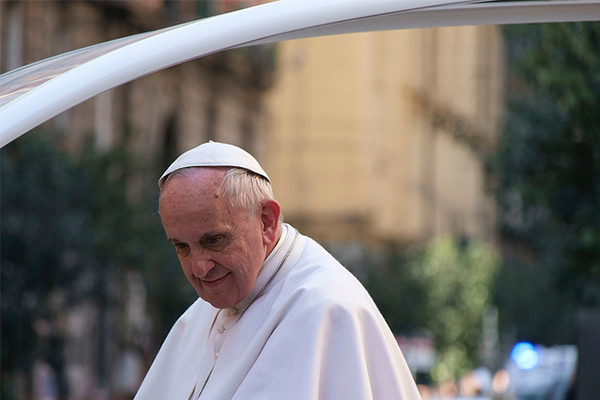
Early Draft of Pope Francis’ Climate Change Encyclical Leaked
- By Alison Lesley --
- 17 Jun 2015 --

Just days before it was meant to be released, Pope Francis’ encyclical on climate change was leaked, disappointing the Vatican.
Pope Francis’ highly anticipated encyclical on climate change, which was due to be released June 18th, was leaked by the Italian magazine L’Espresso on Monday. The Vatican responded, calling the breach a “heinous act.” Furthermore, the Vatican noted that the leaked version of the encyclical was not the final draft but instead an earlier version that was not meant for release.
Even though the exact details of the Pope’s message are not yet revealed, the main message is that while there are also other factors involved, excessive concentrations of greenhouse gasses have caused recent global warming. And humans are responsible for excessive levels of greenhouse gasses.
In the leaked encyclical, the Pope referred to the recent generations’ treatment of Earth as “irresponsible use and abuse” and that we’ve thought that humans were Earth’s “owners and dominators, authorized to loot her.” There is also a human element to Pope Francis’ message as well: climate change is ravaging the poor. He continues to say that clean drinking water is a human right, and that the poorest people in the world rely most heavily on Earth’s natural resources.
It will be interesting to see the reaction of Catholics to the encyclical. A recent poll conducted by Huffington Post and YouGov revealed that while more than four out of five American Catholics believe that humans have a moral obligation to take care of the planet, only half think that human activities have caused change in the climate.
Finally, the Pope ended his encyclical with an uplifting message, stating that the stewardship of the planet should unite the people of the world as a “human family.” He also reminded his readers that “the Creator” has never wavered on his “plan of love” and that all of humanity can still work as one to “build our common home.”




















